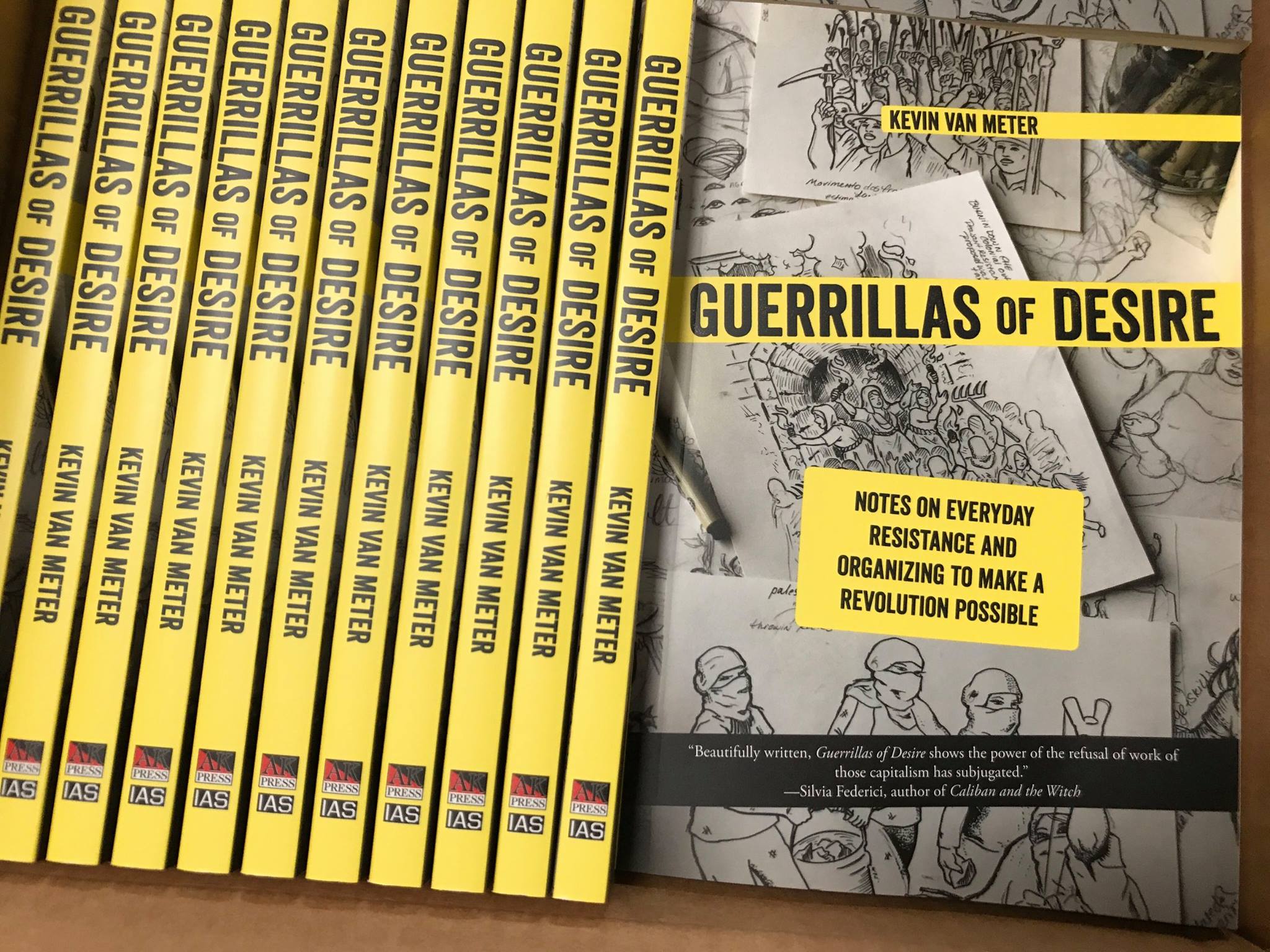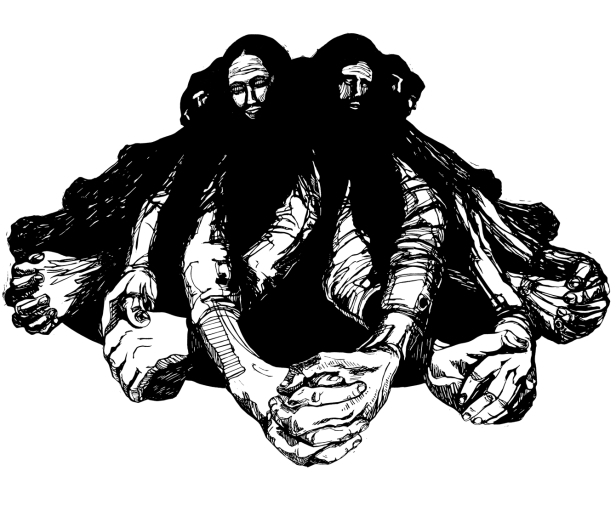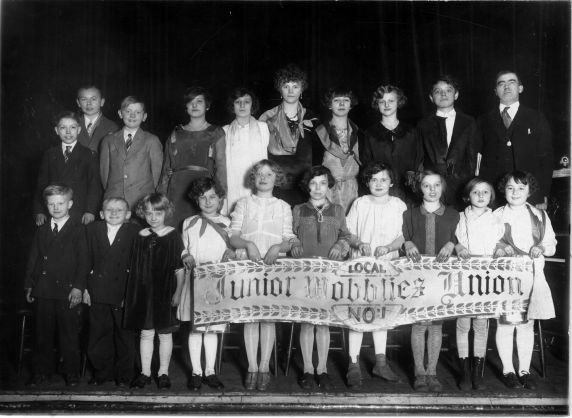I appreciate Kristian Williams’ pamphlet, both the thought put into it and the challenge it represents. I learned a lot from its history, and in particular gained insight into the behavior of anarchists I meet today. Williams traces some practices of contemporary US anarchism back to pacifism, looking at how contemporary anarchists unthinkingly accept much of that philosophy. In my view, that influence led to the movement prioritizing providing comfort to its participants, rather than organizing to change the circumstances that led to the discomfort they feel with society in the first place. This emphasis accepts the inevitability of capitalism and is therefore a strategy to live within its parameters. But I don’t think capitalism will allow us these spaces. Instead, it has to be overthrown and not allowed to come back.
#capitalism
Between Everyday Resistance and Overt Rebellion: Revolutionary Possibilities!, A conversation between Alexander Riccio and Kevin Van Meter
Alexander Riccio, a labor organizer based in Corvallis, Oregon who co-hosts the podcast LabourWave Revolution Radio, talks with Kevin Van Meter, author of Institute for Anarchist Studies/AK Press book Guerrillas of Desire: Notes on Everyday Resistance and Organizing to Make a Revolution Possible, available here!

Alexander Riccio: Some have read your book, Guerillas of Desire: Notes on Everyday Resistance and Organizing to Make a Revolution Possible, as an attack on organized labor in general, or as one that poses an either/or decision between supporting Left organizations, such as unions, versus championing forms of everyday resistance. What do you say to these criticisms?
Kevin Van Meter: I don’t see my work as an attack on organized labor per se, but as a critique of where organized labor has been and how it is currently functioning. I think one of the major problems with organized labor, at least in regards to business unions, is their inability to innovate, their inability to learn from their own historical lessons, and their inability to listen to the actual needs and desires of the working class outside of the union’s organizational frame.
Unions have a very particular way of going about organizing: a steward system, a contract vote, provide services, conduct a corporate campaign. For thirty years, labor unions have hired people predominately out of college rather than from within their own ranks, and during the same period, there has been a focus on corporate campaigns rather than building substantive relationships on the ground. The fact is that building relationships on the job and in communities is necessary for the Left to bounce back, pass legislation, organize unions, and be successful in the streets against forces like fascism. All of that means it’s necessary to reweave the social fabric, but unions have largely ignored this necessity.
Friendship is a Root of Freedom: from Joyful Militancy, by Nick Montgomery & carla bergman
“To become what we need to each other, and to find power in friendship, is to become dangerous.”
—anonymous [1]
“I have a circle of friends and family with whom I am radically vulnerable and trust deeply – we call it coevolution through friendship.”
—adrienne maree brown [2]
“These are not just words; they are clues and prods to earthquakes in kin making that are not limited to Western family apparatuses, heteronormative or not.”
—Donna Haraway [3]

The Seeds of Anti-Capitalist Revolt Found in Everyday Resistance: A Review of Guerrillas of Desire: Notes on Everyday Resistance and Organizing to Make a Revolution Possible by Kevin Van Meter (AK Press, 2017), Review by Scott Campbell

Back when I first began selling my labor for a wage in the wasteland of suburbia’s strip malls, I can recall the tedium of stocking shelves, summoning up insincere courtesy in the face of entitled customers and obnoxious bosses, comparing the stacks of money counted at the end of the day with the totals on our paychecks, and feigning adherence to whatever motivational façade management cooked up to mask the reality of our exploitation.
Yet I also remember, much more vividly and fondly, the latent and occasionally eruptive defiance among my co-workers. This included the constant collective complaining about the job, taking more and longer-than-approved breaks, working as little as possible, fudging time sheets, stealing, and the intermittent screaming matches with the boss in the middle of the store. Underpinning all these actions was an unspoken but broadly understood code of silence when it came to such transgressions and, when appropriate, expressions of support for them.
At the time, I didn’t think much about this, it was just how things happened and I’ve encountered similar experiences to varying degrees in every workplace since. Our actions weren’t guided by a political framework nor was there any attempt to organize them in a directed manner. It was more a spontaneous, innate reaction to experiencing the coercion of capitalism. I had cause to reflect upon this anew while reading Kevin Van Meter’s new book, Guerrillas of Desire: Notes on Everyday Resistance and Organizing to Make a Revolution Possible, published by AK Press and the Institute for Anarchist Studies.
Guerrillas of Desire Book Tour!
Following the release of Octavia’s Brood: Science Fiction Stories from Social Justice Movements, edited by Walidah Imarisha and adrienne maree brown, and Walidah Imarisha’s Angels with Dirty Faces, which won the Oregon Book Award for Creative Nonfiction, the Institute for Anarchist Studies is proud to announce the publication of Kevin Van Meter’s Guerrillas of Desire: Notes on Everyday Resistance and Organizing to Make a Revolution Possible, published in conjunction with AK Press. Join Kevin as he reads from and talks about his book on these upcoming dates!
The Fourth Star: The New Junior Wobblies and the Next Generation of Union Militants, by Sadie Farrell and M.K. Lees
Several factors played into our collective decision not to run a print issue of Perspectives on Anarchist Theory for the current year. We sincerely thank all inquiries and submissions sent for what was hoped to be an issue on Play. A call for submissions for a Beyond The Crisis print issue of Perspectives (2018) is here.
This is an article written by two Wobblies in response to our call for Play essays. These organizers bridge the gap between play and the practice of organizing skills via educational skits and fun activities led by the New Junior Wobblies, the young members of the Industrial Workers of the World (IWW).
The IWW globe logo holds three stars representing Education, Organization and Emancipation. This article looks at Recreation – a fourth star – from challenging uneven relations of power, to making joy central to organizing against capitalism, regardless of age.
Shortly after a wave of government repression and internal splits nearly destroyed the Industrial Workers of the World (IWW) as a functioning labor organization, a group of Wobblies felt the immediate need to find new ways to raise the next generation of revolutionary unionists. As a part of solidarity support for striking IWW coal miners in Colorado, children of union members were invited to join an IWW organization of their own. These Wobbly kids formed “locals” to organize support for their striking parents, and alongside them, develop a rudimentary understanding of the world and how they might soon be a part of organizing to change it. To the IWW tripartite motto, “Education, Organization, Emancipation” they added “Recreation,” and in 1927, the Junior Wobblies Union was born.

Guerrillas of Desire: New IAS Book on Everyday Resistance and Organizing Available for Preorder!

Silvia Federici says it is “beautifully written” while illustrating “the power of the refusal of work of those capitalism has subjugated.” George Caffentzis believes it is an “important exploration of the revolutionary possibilities of our time.” Kevin Van Meter’s Guerrillas of Desire: Notes on Everyday Resistance and Organizing to Make a Revolution Possible is the latest Institute of Anarchist Studies book to be published in concert with AK Press.
Perspectives available in Canada!
The current anarcha-feminisms issue of Perspectives on Anarchist Theory (n. 29), and all back issues, including:

Justice, Strategy, Care, Movements, and Climate, are now available in Canada, from Kersplebedeb Leftwing Books!
Organizing Against Climate Catastrophe, by Paul Messersmith-Glavin

The forces responsible for changing the climate and endangering the future of humanity have names. Names such as: Chevron and Exxon Mobil, Saudi Aramco and Petroleos de Venezuela. They are the predominant groups responsible for playing havoc with our collective future. In fact, two-thirds of historic carbon dioxide and methane emissions can be attributed to exactly ninety entities. They are based in forty-three countries and extract resources from every oil, natural gas, and coal rich region in the world. They process the fuels into products that are sold to consumers in every nation on the planet. Of the top 85 emitters, 54 are in industrialized countries and 31 are in developing nations.[2] Knowing who and where they are demonstrates that an end to the problem is within our reach. In order to stop global climate change all we need to do is put pressure on these isolated entities, right?
Wrong. While these are the primary economic forces responsible for climate change, it would be a mistake to think if we stop these particular companies from conducting business as usual, we can solve the problem. They are only the most public faces of a system that goes much deeper.


